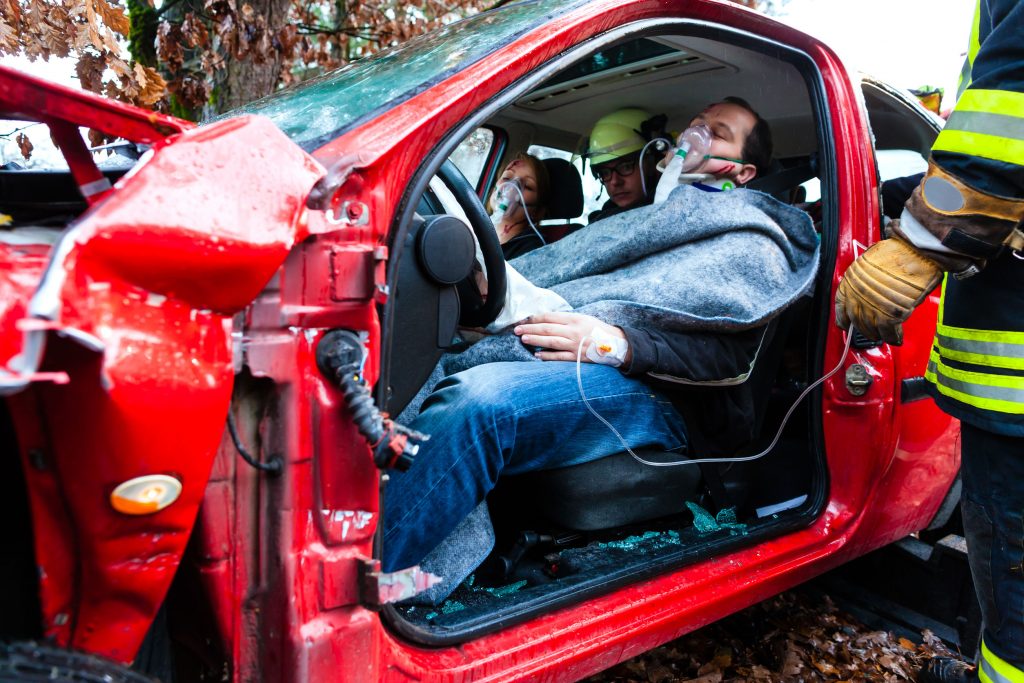
Chest trauma is the third most common injury sustained in motor vehicle collisions in the United States. Chest injuries range from severe to minor depending on the location of the injury, and the extent of damage to the ribs and internal organs. If you suffered chest injuries after a car accident, read this page to learn about your legal rights.
- Major Chest Injury
Major trauma to the chest may involve injuries to internal organs like your lungs, liver, kidneys, spleen, trachea, esophagus, or blood vessels. A major chest injury usually causes severe pain in the chest area immediately following the accident, coupled with difficulty in breathing, dizziness, and loss of consciousness. Immediate medical attention is required to avoid long-term damage to your organs as well as to prevent fatalities due to severe blood loss, and lack of oxygen to the brain and organs.
- Minor Chest Injury
Symptoms of minor chest trauma tend to show days after the accident, and they include pain when coughing, sneezing or breathing deeply. You may also experience pain when moving your shoulder, arm, or the upper part (trunk) of your body.
Although you may have received a clean bill of health on the day of the accident, you should get checked out again if these pains start just to be sure there isn’t more to the pain. In most cases, however, these kinds of injuries tend to resolve on their own.
- Rib Injury
You may experience chest pain because of a broken, cracked or bruised rib. The pain gets worse when you breathe deeply, cough or lie on the injured area. As long as there aren’t any complications arising from the rib injury, such as a punctured lung, you will just have to allow the rib to heal on its own.
Legal Implications of a Chest Injury Caused by a Motor Vehicle Accident
After you have taken care of all the medical aspects of the accident, you will have to deal with the legal issues. If your accident was the result of another driver’s negligence, then you need to talk to a car accident lawyer as soon as possible. It is always important to retain your attorney as soon after the accident as possible so that the attorney can commence his investigation and begin collecting evidence including witness statements. A delay may result in lost evidence which may impact the value of your ultimate settlement.
Your lawyer should be able to assess financial, physical and emotional implications of the accident so he can prepare your case for negotiation with the insurance company and for trial if you are not able to come to agreement on the compensation you are due. If your injuries will require long-term recovery, your lawyer should factor in compensation for future losses – including both lost income and future medical expenses – along with the present losses.
If you suffered chest injuries after a car accident, contact one of our personal injury lawyers to determine your legal rights.















